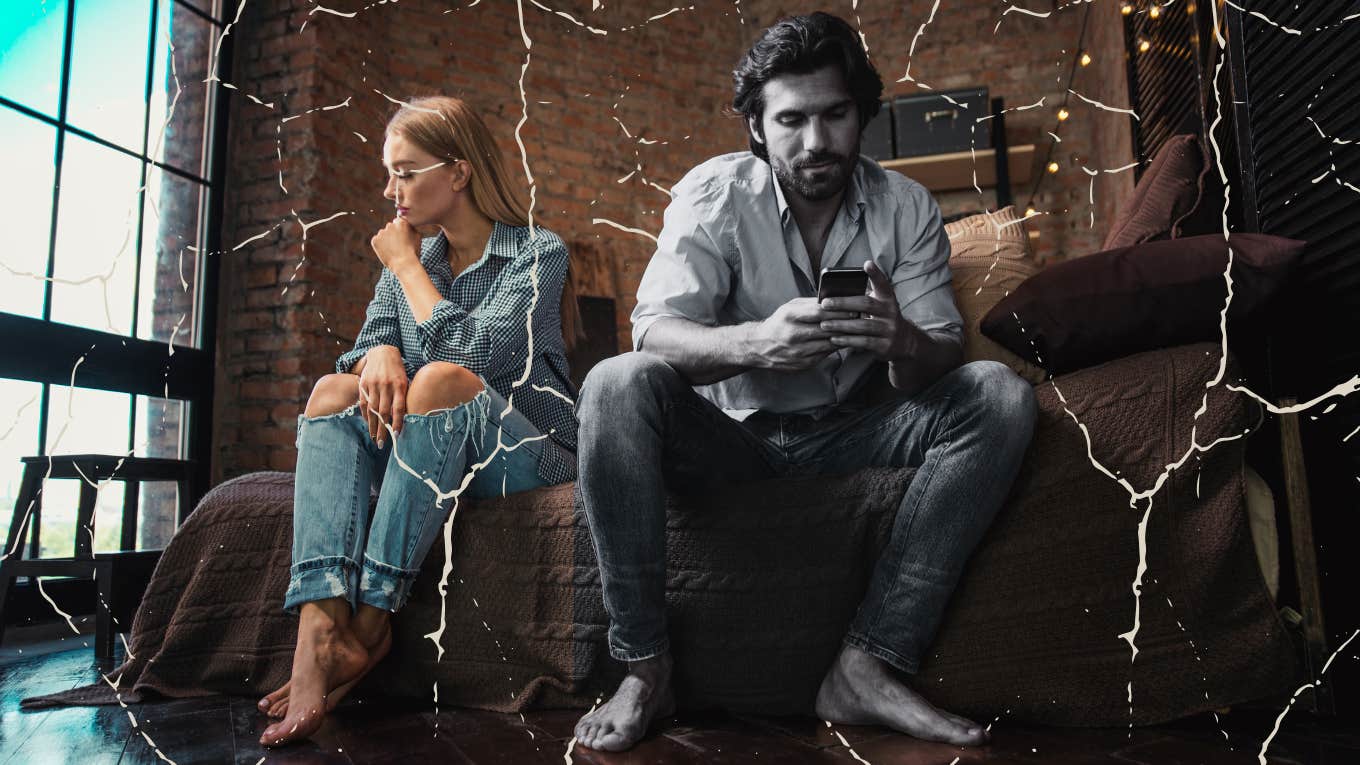Is Cheating A Form Of Domestic Abuse?
Abuse has different forms; is cheating one of them?
 Oneinchpunch | Canva
Oneinchpunch | Canva Editor's Note: This is a part of YourTango's Opinion section where individual authors can provide varying perspectives for wide-ranging political, social, and personal commentary on issues.
By Ro Ingram
Did you know that cheating is also considered domestic abuse?
Psychologists believe the pattern of abusers and cheaters can be very similar.
Both groups often try to justify their behavior, deny their actions, or otherwise refuse to take responsibility. The person doing the betraying may originally feel a little bit sorry, but really shows no concern about his/her partner’s feelings, therefore minimizing or making light of the behavior.
Also, those who refuse to admit to the cheating or tell victims when they are questioned, that their partner is delusional or crazy just make the situation worse. This causes feelings of hurt, loss of self-esteem, and emotional trauma to the victim.
If this is happening in your world, it is not your fault and you are not alone!
RELATED: 5 Excuses People Give For Cheating That Are Total Lies
Sadly, abuse runs rampant in today's society. Many have grown to accept verbal degradation or cheating by minimizing it, laughing about, it, or pretending it doesn't exist.
Also, seeing someone with a black eye or a broken arm/leg may cause someone to whisper, but nothing is ever really done about it. Living with someone who gradually changes into a person who is no longer the person you know is tragic.
While cheating displays no blatant visible signs, the emotional degradation is mind-blowing.
Domestic abuse in any form is very real, demeaning, harmful, and potentially dangerous to you or someone you love. Please don't ignore it.
I have zero tolerance for cheating. I read a lot and watch a lot of movies, but if either hints at a situation where someone who is married is cheating, that movie is done and the book gets tossed aside. I see it as a betrayal of the marital vows and view abuse as cruelty.
We can offer words of encouragement and be there when needed for those who are suffering. We also hope that victims or survivors continue to grow by becoming part of a group if it is safe to do so.
If you think you may be experiencing depression or anxiety as a result of ongoing emotional abuse, you are not alone.
Domestic abuse can happen to anyone and is not a reflection of who you are or anything you've done wrong.
If you feel as though you may be in danger, there is support available 24/7/365 through the National Domestic Violence Hotline by calling 1-800-799-7233. If you’re unable to speak safely, text LOVEIS to 1-866-331-9474, or log onto thehotline.org.
Ro Ingram is a freelance writer and former contributor to BlogHer.
